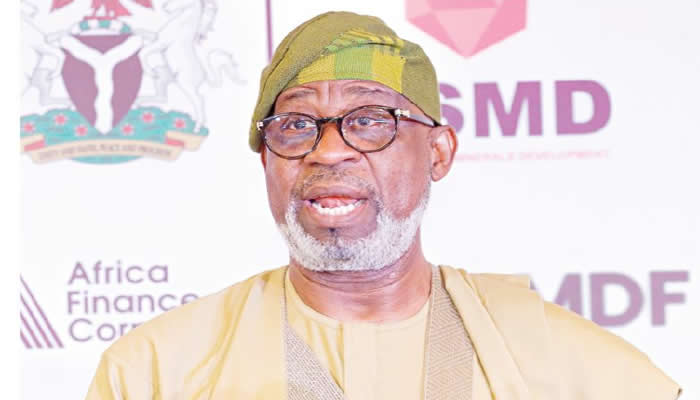Dele Alake, Nigeria’s Minister of Solid Minerals Development, expressed a contrarian view on the impact of US-imposed tariffs on African economies. Speaking at the 14th Annual Investment Meeting Congress in Abu Dhabi, he posited that these tariffs, designed to discourage exports from countries like Nigeria, could inadvertently benefit the African continent. Alake argued that the tariffs present an opportunity for African nations to shift their focus inwards, strengthening domestic policies and fostering intra-African trade, thereby reducing dependence on external markets. He criticized the traditional “pit to port” model, where Africa exports raw materials without local processing, advocating instead for value addition and job creation within the continent. He emphasized that investors are welcome, but they should contribute to local economies by establishing factories and creating jobs rather than simply extracting resources. This stance aligns with Nigeria’s mineral development policy, which prioritizes local value addition and job creation, and reflects a growing sentiment among mineral-rich African nations.
Alake’s comments were made during a session titled “The Alchemy of Foreign Direct Investment – Turning Policies into Prosperity for Emerging Global Markets,” which explored the evolving landscape of investment and trade. The US tariffs, imposed by the then-President Donald Trump, levied a 14% duty on Nigerian exports, posing a significant threat to the $10 billion annual trade between the two countries. Sectors like oil export and agricultural trade were particularly vulnerable. While the tariffs were subsequently suspended for 90 days, they triggered a trade war, leading to increased prices for consumers, a decline in living standards, a slowdown in manufacturing, and a disruption of international trade flows. This context underscores Alake’s call for African nations to reassess their economic strategies and prioritize intra-African trade to mitigate the impact of such external shocks.
The minister’s message resonates with a broader shift in global trade dynamics. Increasingly, countries are recognizing the importance of diversifying their trade partners and reducing reliance on any single market. The US-imposed tariffs, while potentially damaging in the short term, could catalyze a long-overdue restructuring of African economies. By focusing on internal development and regional trade, African nations can build resilience against external pressures and foster sustainable economic growth. This approach aligns with the principles of self-reliance and regional integration that have been advocated by many African leaders and economists. The challenge lies in translating this vision into concrete policies and actionable strategies.
Alake, who chairs the African Minerals Strategy Group, a coalition dedicated to protecting the continent’s mineral wealth, highlighted Nigeria’s commitment to value addition and job creation in the mineral sector. This commitment represents a departure from the traditional extractive model that has characterized much of Africa’s resource sector. By prioritizing local processing and manufacturing, Nigeria aims to capture a greater share of the value chain and create more jobs for its citizens. This strategy has the potential to transform the Nigerian economy and serve as a model for other African countries seeking to leverage their mineral resources for sustainable development.
The Annual Investment Meeting Congress, held at the Abu Dhabi National Exhibition Centre, provided a platform for global leaders, corporate executives, technology innovators, and financial experts to discuss investment opportunities and foster economic cooperation. The theme, “Mapping the Future of Global Investment: The New Wave of a Globalized Investment Landscape – Towards a New Balanced World Structure,” reflects the ongoing transformation of the global investment landscape. Alake’s participation and his message of intra-African trade and value addition resonated within this broader context of shifting global economic power dynamics. His presence alongside other global leaders underscored the importance of international collaboration and dialogue in navigating the complexities of the global economy.
Beyond his participation in the discussions, Alake also engaged directly with various stakeholders at the event. He toured the exhibition platform, where Nigeria was represented by the Solid Minerals Development Ministry, the Solid Minerals Development Fund, and the Zamfara State government. He also visited the booths of private business groups from Nigeria, such as the Women Enterprise Alliance, and from other African countries, like Ghana’s Jant’s Fashion Collection. These interactions demonstrate a proactive approach to attracting investment and promoting Nigerian businesses on the global stage. The AIM Congress, which attracts thousands of participants annually, aims to “ignite positive transformation by creating investment opportunities, upholding solidarity, and developing economic relations among nations.” Alake’s engagement with various participants and exhibitors aligns with this objective, further emphasizing Nigeria’s commitment to attracting foreign investment and fostering economic partnerships.


